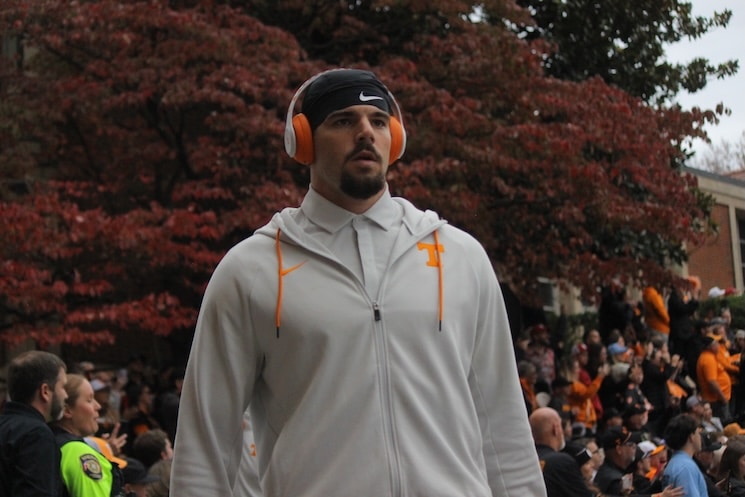It didn’t take long for Ohio sports betting to become the most active market in the United States. GeoComply, a technology company that verifies compliance by sportsbooks and sports bettors, recorded 11.3 million geolocation transactions in the state in the first two days of the year. That figure was higher than any other start for Jan. 1-2, including New York, which has become the biggest sports betting state by a gigantic margin.
Ohio entered the online sports betting market at 12:01 a.m. on Jan. 1, following more than 12 months of preparation. The state launched both online and retail sportsbooks on the same day. Many popular sportsbooks are operating in the Buckeye State, including Caesars, BetMGM, BetRivers, FanDuel, DraftKings, Bet365, Betfred, and PointsBet.
Claim up to $7,700 in bonuses with Ohio Sports Betting Promos
With GeoComply confirming that users were performing their transactions from within the state borders, the Ohio betting market is assured of being secure and safe. The company performs the same task for many of the more than 30 states that have legal sports betting. There are 16 operators in the state in all, according to GeoComply, which places Ohio among the top three states for legal options to consumers.
“Today, about 44 percent of the American population can bet online with legal and responsible operators,” said Lindsay Slader, who is GeoComply’s Senior Vice President of Compliance. “The launch of regulated online sports betting in Ohio will better protect its citizens, with an increased commitment to responsible gambling and new funding for critical state programs.”
Ohio Sports Betting Had Nearly 4,000 Transactions Per Minute
According to data released by GeoComply, there were 234,000 geolocation transactions performed in the first hour that sports betting was open for business in Ohio. That means that between 12:01 a.m. and 1 a.m. ET, about 3,900 transactions were received per minute on average.
By comparison, New York recorded 9.3 million geolocation transactions on Jan. 1-2, the second-highest figure. Pennsylvania (8.2 million), New Jersey (6.7 million), and Michigan (5.8 million) followed in the top five. The two states that border Ohio to the east and west (Pennsylvania and Indiana), combined for fewer transactions for those first two days (10.6 million) than the Buckeye State, according to GeoComply.
At the end of the first two days that sportsbooks were available to take bets online in Ohio, there were 784,000 unique accounts created in the state. Some of that figure may include accounts created in the days and weeks leading up to the launch date.
Cincinnati Busiest Ohio Sports Betting City in First two Days
The busiest Ohio cities based on geolocation transactions for Jan. 1-2, in Ohio, were:
- Cincinnati — 1.89 million
- Columbus — 1.03 million
- Cleveland — 772,000
- Toledo — 619,000
Despite having a larger population than Cincinnati and Cleveland combined, Columbus had more than 800,000 fewer transactions in the first 48 hours of legal sports betting in the state.
One of the first bettors was former Reds star and MLB hit king Pete Rose, who placed the first bet at the Hard Rock Casino in Cincinnati. Rose, who was banned from baseball more than 30 years ago for gambling on the sport, placed a futures bet on the Reds to win the 2023 World Series.
As the seventh-most populous state in the nation, it’s expected that Ohio will be a significant market for mobile sports betting. Since 2018, when the U.S. Supreme Court struck down a 1992 federal law that effectively prohibited commercial sports betting in most states, more than 30 states have passed legislation to legalize it. A report commissioned by the Ohio Casino Control Commission predicts that as much as $1.1 billion in total handle could be taken in 2023, with growth projected for further years.
Ohio allows betting on professional and college athletics, with wagers accepted on spread, moneyline, parlays, futures, and props bets. Some of the tax money generated must be set aside for education programs, funding of veterans assistance, and problem gambling resources. Ohio levies a 10% tax on the adjusted gross revenue of sportsbooks. That figure allows sports betting operators to deduct expenses from acquiring customers via bonuses and promo codes.
Based in Vancouver, GeoComply is a leading supplier of fraud prevention and cybersecurity solutions for sports betting and other gaming operators. With geolocation technology, sportsbooks using GeoComply verify the identity of their customers, as well as the location to comply with state law.



